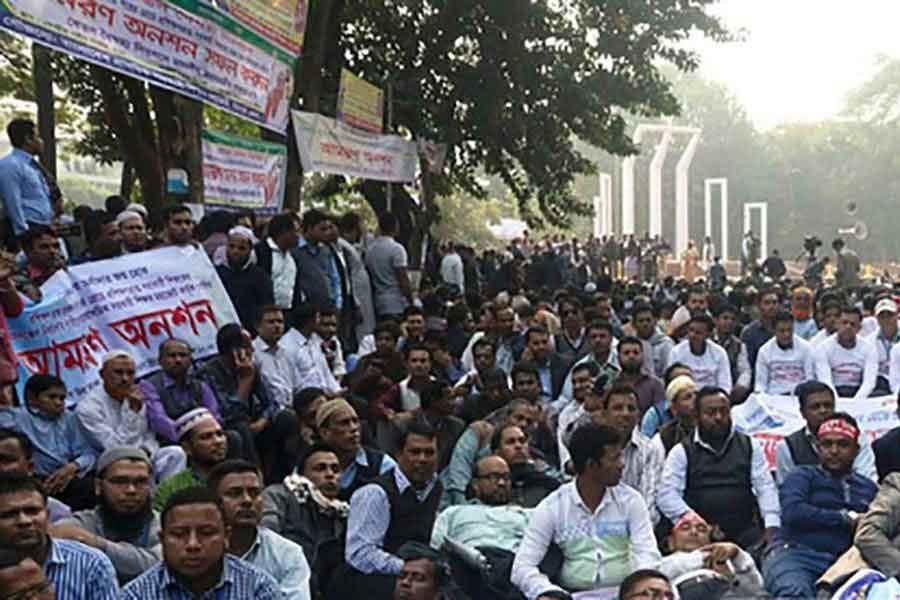The non-government teachers' strike that ended last week was a clear enough sign to cash in on a delicate moment when the government was trying to appease as many quarters as possible in the run-up to the national polls. Apparently, they have succeeded in their mission. Calling off their 'hunger strike unto death' at the assurance of the Prime Minster to bring all private educational institutions under the Monthly Payment Order (MPO) scheme reflects the veritably correct timing of their move.
Facilitating the teachers financially is no doubt a precondition for facilitating the education system at large. The private educational institutions that have grown all over the country, mostly in rural and semi-rural locations, were meant to complement government's efforts to reach education to the masses. Some of these institutions are doing a good job. But the fact remains that the way most of these institutions-- schools and madrashas, in particular-- are run, falls short of the required standards. Teachers' recruitment is often blamed for this, as these institutions can barely manage to recruit qualified teachers who are a scarce variety themselves. The government is now considering, albeit actively, to bring a large number of private institutions under the MPO scheme-- the much sought after financing tool that provides for full payment of the teachers' basic salary by the government. But the important issue that must not be compromised is the academic qualification of teachers. The changes in the curriculum in the recent years require competence of teachers as the most crucial factor to make education meaningful.
Currently, 26,340 schools, colleges and madrashas receive MPO, and the number of teachers is around 400,000. The institutions not listed for MPO are well over 5,000 with a pool of, reportedly, 80,000 teachers. It would take more than TK 24 billion a year to include this large number of institutions in the MPO scheme. Money, however, should not hold up the process, but dishing out this huge amount must ensure quality teaching. If this can be done, the spending can be worth the purpose. It may be recalled that the incumbent government in its first term had revived the MPO scheme -- suspended during the previous government -- as part of its electoral pledges. A total of 1,624 secondary and higher secondary private schools, madrashas and colleges were then included in the MPO. It remains to be seen whether that initiative paid off or not. A good number of those institutions, according to reports, are not up to the mark and some are too far away from bare minimum standards.
Given this situation, it need not be stressed that blanket coverage of all non-MPO institutions and teachers serving there should not be the policy of the government. There has to be a mechanism, indeed a strict one, through which screening of teachers can be done, particularly on the basis of their qualifications and other necessary credentials. Otherwise, it would be sheer populism that the country can ill afford at the expense of education.


